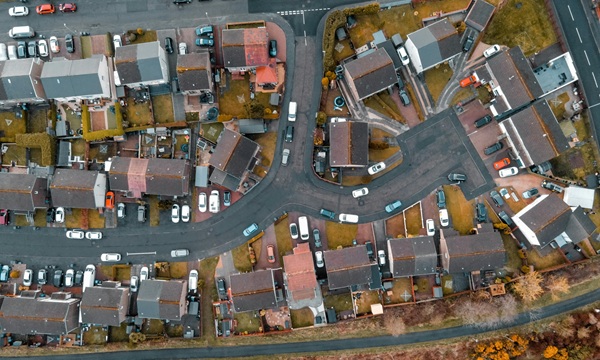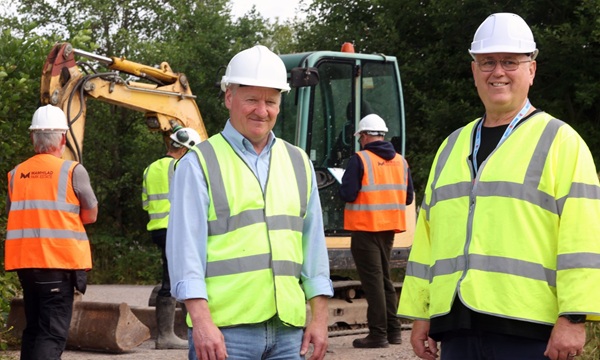With a consultation on ‘promoting a resilient and high performing planning service’ due to close, business leaders have told Business News Wales of the urgent need to fix Wales’ planning system.
Whether it’s renewable energy projects, housing developments, or strategic infrastructure, delays in the system are stalling progress, denting confidence, and holding back economic growth.
First Minister Eluned Morgan and Cabinet Secretary for Economy, Energy and Planning Rebecca Evans have acknowledged the challenges and launched a consultation aimed at improving planning performance and resilience.
The consultation closed on 17 January and what happens next will be critical. Businesses want to see a swift and proactive response from Welsh Government, one that builds confidence and delivers real change on the ground.
Speaking on the Business News Wales Economy & Infrastructure podcast, Ben Cottam, head of Wales for the FSB, outlined how the system has become a barrier to growth. While he credits the Welsh Government for its commitment to reform and investment, he warns that delays are “soaking up investment” and undermining the ability of smaller businesses to expand or plan for the future. A faster, more cost-effective, and transparent system is essential.
As he puts it:
“We need to see speed of decision-making and the cost-effectiveness of decision-making.”
In the renewable energy sector, the stakes are even higher. Projects that could help meet Wales’ ambitious decarbonisation targets are languishing in the planning system, often for years on end.
Sophie Howe, Wales’ former Future Generations Commissioner, captures the urgency:
“This will be the critical decade of delivery… what happens in 2025 will set the tone for that.”
Much of the problem boils down to resource and capacity. Speaking on Business News Wales’ Property & Construction Wales podcast, Phil Jardine, partner at Blake Morgan, describes a system that is underfunded and overstretched, struggling with both the volume and complexity of applications. “This is about people and skills and capacity within planning authorities,” he explains, pointing to the urgent need for investment in local expertise. Without it, backlogs will continue to grow, and Wales will fall further behind its competitors.
The lack of strategic development plans compounds the issue. On the podcast, chartered surveyor Chris Sutton highlighted the slow pace at which regional plans are progressing – introduced in 2015, they may not be ready until 2028 or beyond. For businesses, this is untenable, he notes.
As Sutton says:
“Imagine if you were in the private sector – imagine a board and an executive and the executive says, ‘You've asked us to do a business plan. We're going to do it in 14 years’ time’. It just is not good enough.”
The Welsh Government’s consultation marks a significant step forward. Proposals to increase planning fees to ensure full cost recovery, support skills retention through apprenticeships, and explore shared services and planning hubs are all welcome. Business leaders now need to see early, tangible progress that restores confidence and ensures planning authorities are fit for purpose.
There is a real opportunity here to build a planning system that works for everyone. As Stuart George, managing director of Bute Energy, points out, the system doesn’t need to be easier for developers; it needs to be clearer, faster, and more predictable. Investors hate uncertainty, he says, and it’s one thing that is currently preventing them from looking at Wales.
Businesses now want to see momentum, collaboration, and delivery. A reformed planning system will unlock investment, drive economic growth, and create jobs. It will also send a clear signal: that Wales is open for business and ready to deliver.













